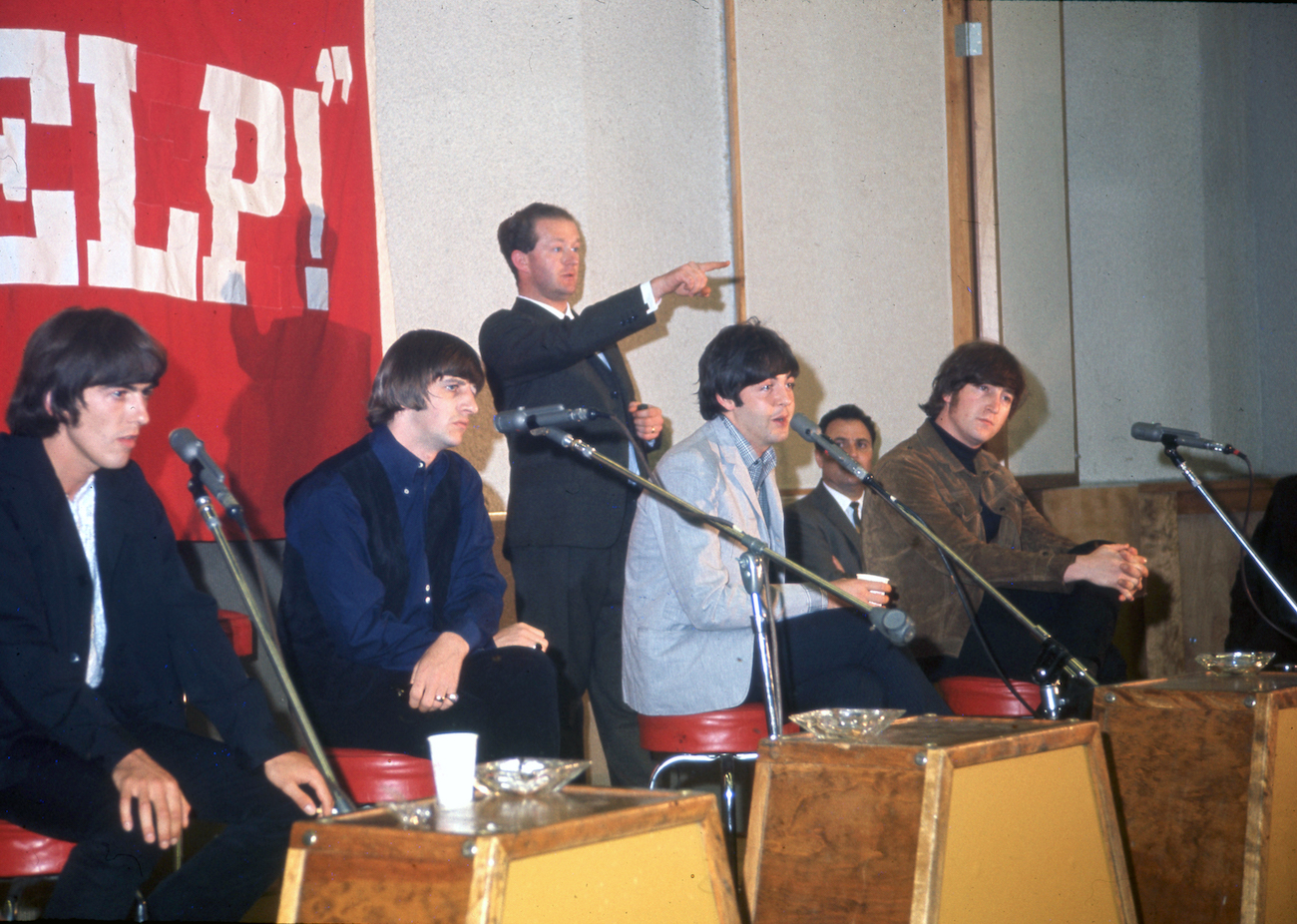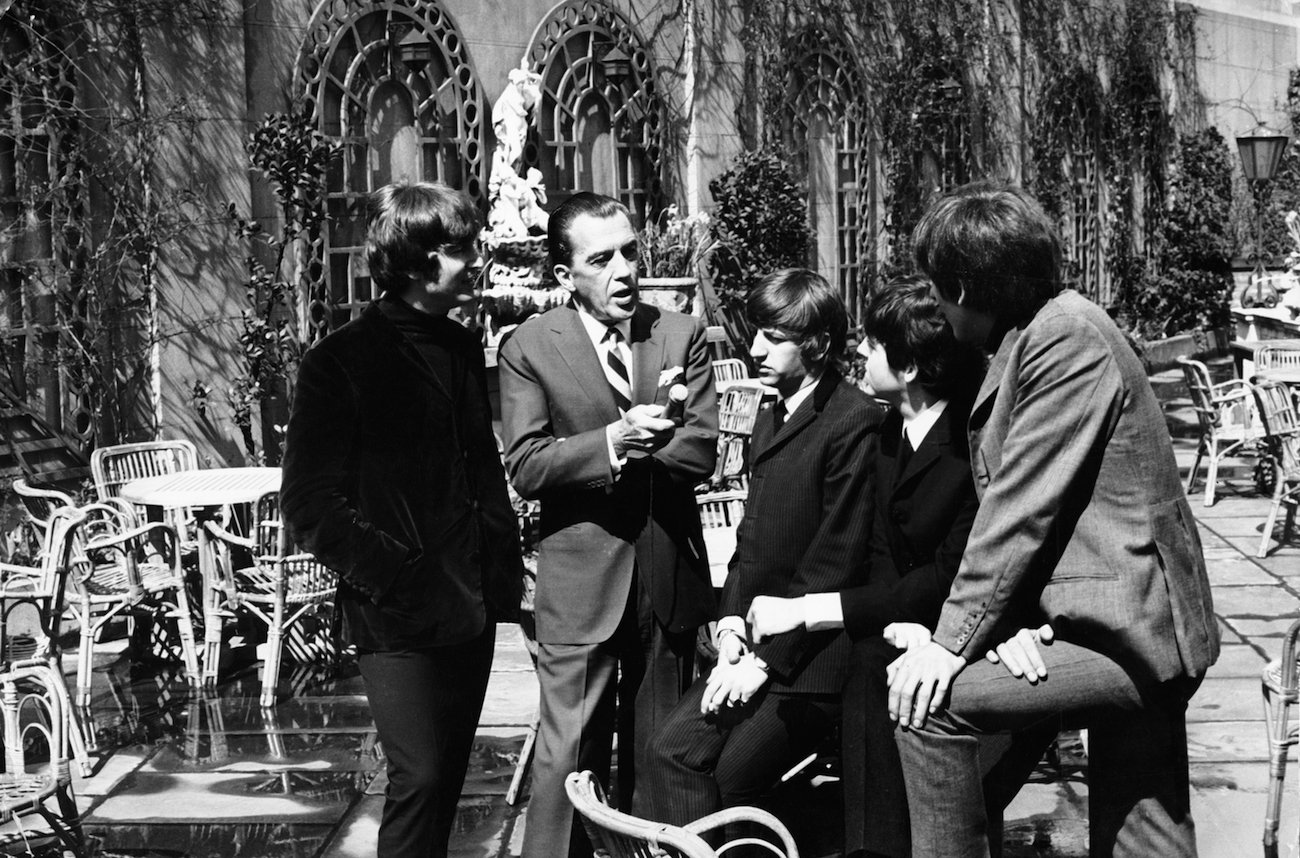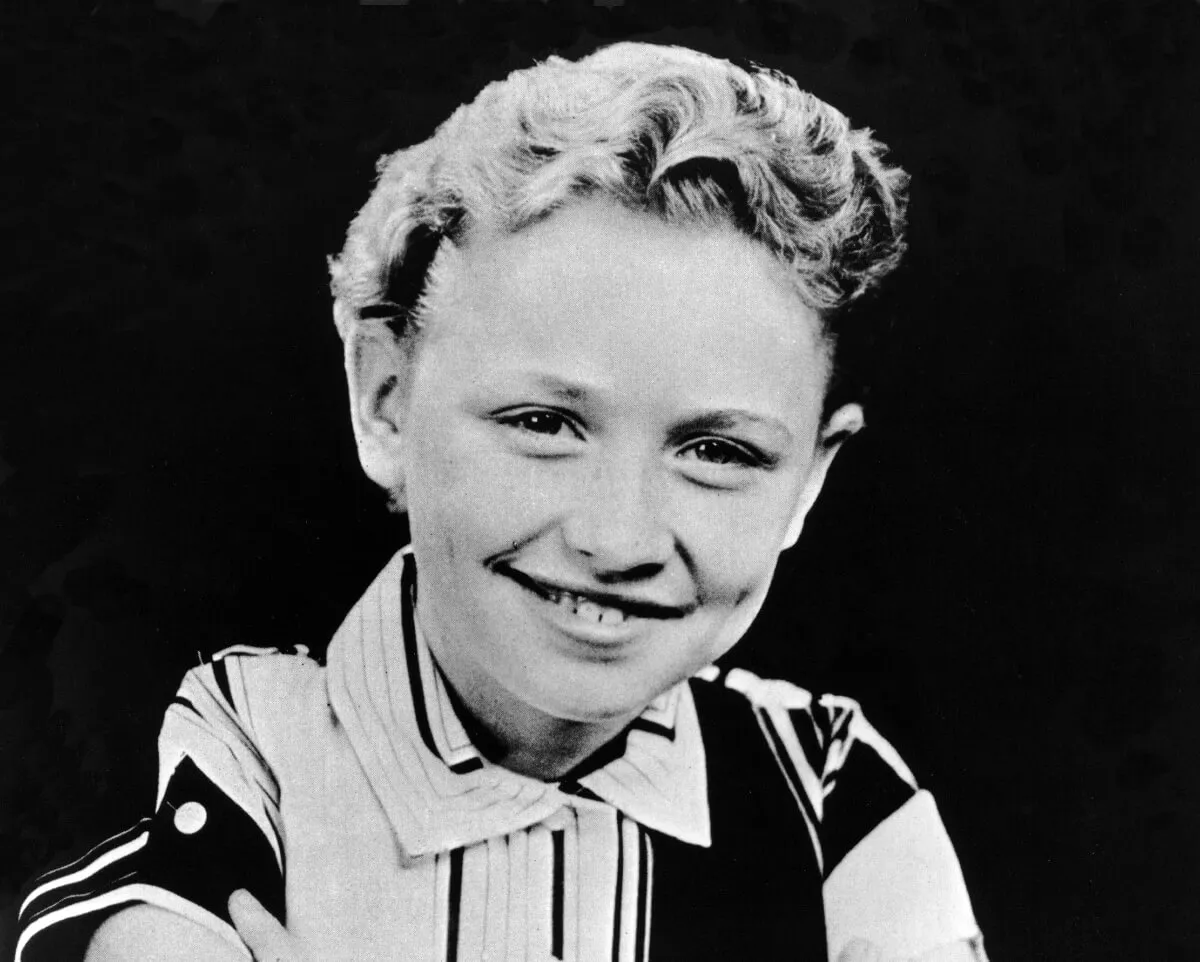
Cousin Brucie Rarely Talked to George Harrison During Beatle Interviews Because He’d Produce Dead Air
Radio personality Cousin Brucie said most reporters, including him, rarely chose to talk to the “quiet Beatle,” George Harrison, during Beatles interviews. They thought he’d produce dead air or say something too serious. They didn’t understand him.

Cousin Brucie said George Harrison was more present than the others during interviews
Radio personality Bruce Morrow, a.k.a. Cousin Brucie, spent a lot of time with The Beatles. He watched them closely and tried to figure out their true personalities. One thing he found about George was that he was more present than his bandmates.
In Joshua M. Greene’s Here Comes The Sun: The Spiritual And Musical Journey Of George Harrison, Cousin Brucie said, “Even in those early days, George was different from the other three. For example, just before going on stage at Shea Stadium, Paul asked me, ‘What’s going to happen here?’ George wouldn’t verbalize his concerns like that. He would simply study what was going on.
“Some people might look at him and think he was disassociated, that his head was somewhere else, but he struck me as even more present than the others, watching from within and absorbing and thinking about what was going on. He was very aware of his surroundings, planning ahead. He just wasn’t verbal about it.”
If Cousin Brucie could figure out that George was a deep thinker and more present than the rest, even in The Beatles’ early days, he should’ve known that George wasn’t entirely the “quiet Beatle.” George was a deep thinker during interviews and in general, but that didn’t mean he was always quiet.
Cousin Brucie rarely talked to George during Beatle interviews
The radio personality explained it was easier for him and other journalists to think George was just a quiet person than to understand his real personality. Deep down, they may have understood, but George’s demeanor scared them. They thought he’d say something too serious and produce dead air.
“I remember interviewing them, and in those days, honestly, George wasn’t the most exciting Beatle,” Cousin Brucie explained. “As a journalist, you’d go after John or Paul or Ringo. George’s introspection made us afraid of getting too much of the mortal sin for a broadcaster, namely dead air.”
If George produced dead air, why did the BBC call him to be the group’s spokesman, interviewing his fellow bandmates for the radio program Public Ear in 1964? Why did Manchester’s Daily Express ask him to write a column?
George was direct, but at least he knew when to be humorous. He came up with some of the best one-liners that made everyone laugh. “Amid the mocking group banter the Beatles excelled at, Harrison held his own, throwing out lines that kept the others—and his fans—in stitches,” Ashley Kahn wrote in George Harrison on George Harrison: Interviews and Encounters. “Before stardom or spirituality, humor was his first line of defense.”
Cousin Brucie wishes he and other journalists had given George a chance
Cousin Brucie said he wishes he and other journalists had given George a chance to be himself. “But in retrospect, that was very wrong,” he said about avoiding George during interviews. “I think now that if we had given George the courtesy and respect he deserved, his whole persona might have changed. But none of us did that. It was the other three who got 90 percent of the action.”
George was always direct; that was another problem. The radio personality continued, “When he was interviewed, George was always direct, never flowery with his words. He answered succinctly. If he could answer in two sentences, he never made it into a paragraph. He had kind eyes. When you spoke with him, he looked directly at you. You knew there was sensitivity at work.
“I remember talking to George in one Beatles interview, and McCartney butts in and asks John, ‘Hey, John, why don’t you tell him who you’re sleeping with now?’ First of all, in those days, you didn’t make those kinds of references on the air. But I remember George looking down. He didn’t say anything, but he looked down as if he was embarrassed or disapproved.
“I don’t know whether it was for me or for what McCartney said, but it did seem that he felt the comment out of line. Maybe their success in America had hit them so quickly that they didn’t always know how to handle it and would sometimes react with nervous energy and get occasionally snippy. But Harrison never was.”
George was hard to figure out. Radio disc jockey Murray “the K” Kaufman knew this too. “George is a very nitty-gritty person. When you say something to George, he’d say, ‘Okay, now what do you mean?’ He wants to be very specific. He’s very upfront. He’s very truthful. He will not allow something to go by that he doesn’t know exactly.”
The press quickly realized their label for George might not have been entirely accurate. However, Cousin Brucie and Kaufman were some of the only journalists who admitted they were wrong to judge George.


